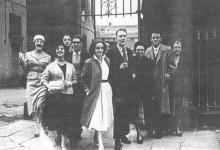Insights to contemporary Ireland through immigrant theatre
In dem days was before the Africans came to Parnell Street. Them days was before the Africans came to our stages, too.
This was the year when immigrants got themselves a mayor, a minister, and a voice on the Irish stage. As in politics, so too in the theatre: most of the talking for immigrants is being done by the Irish – but not all.

